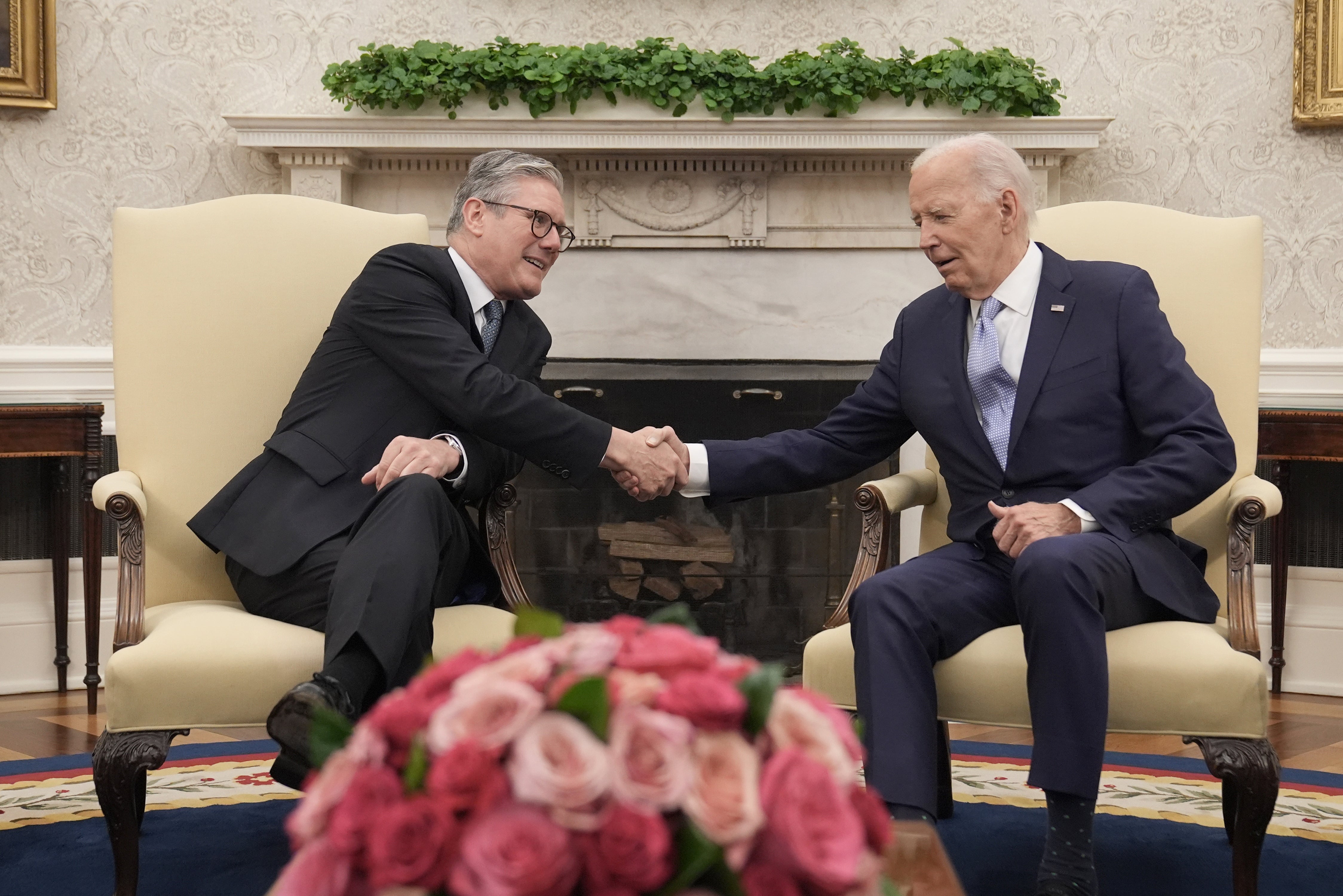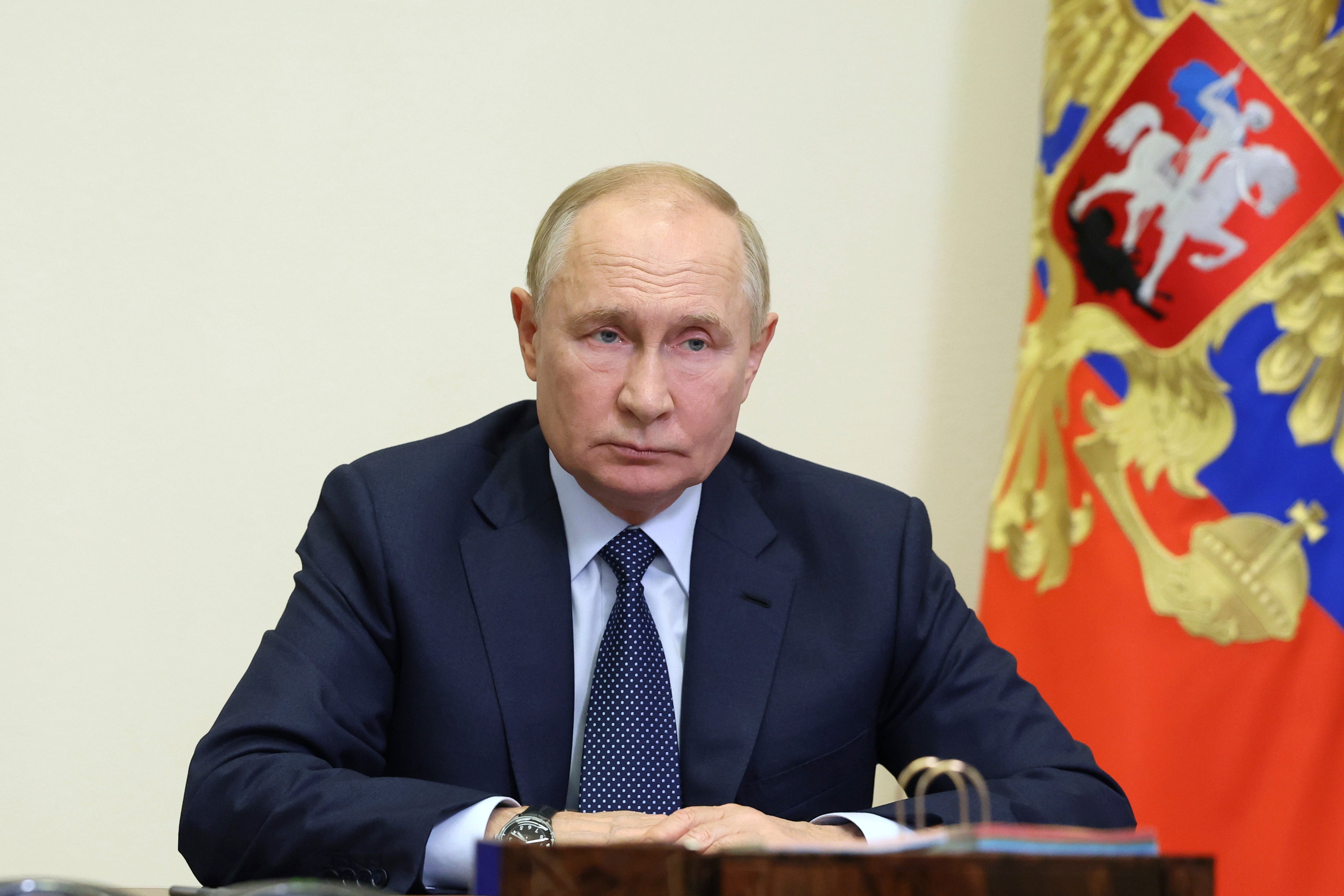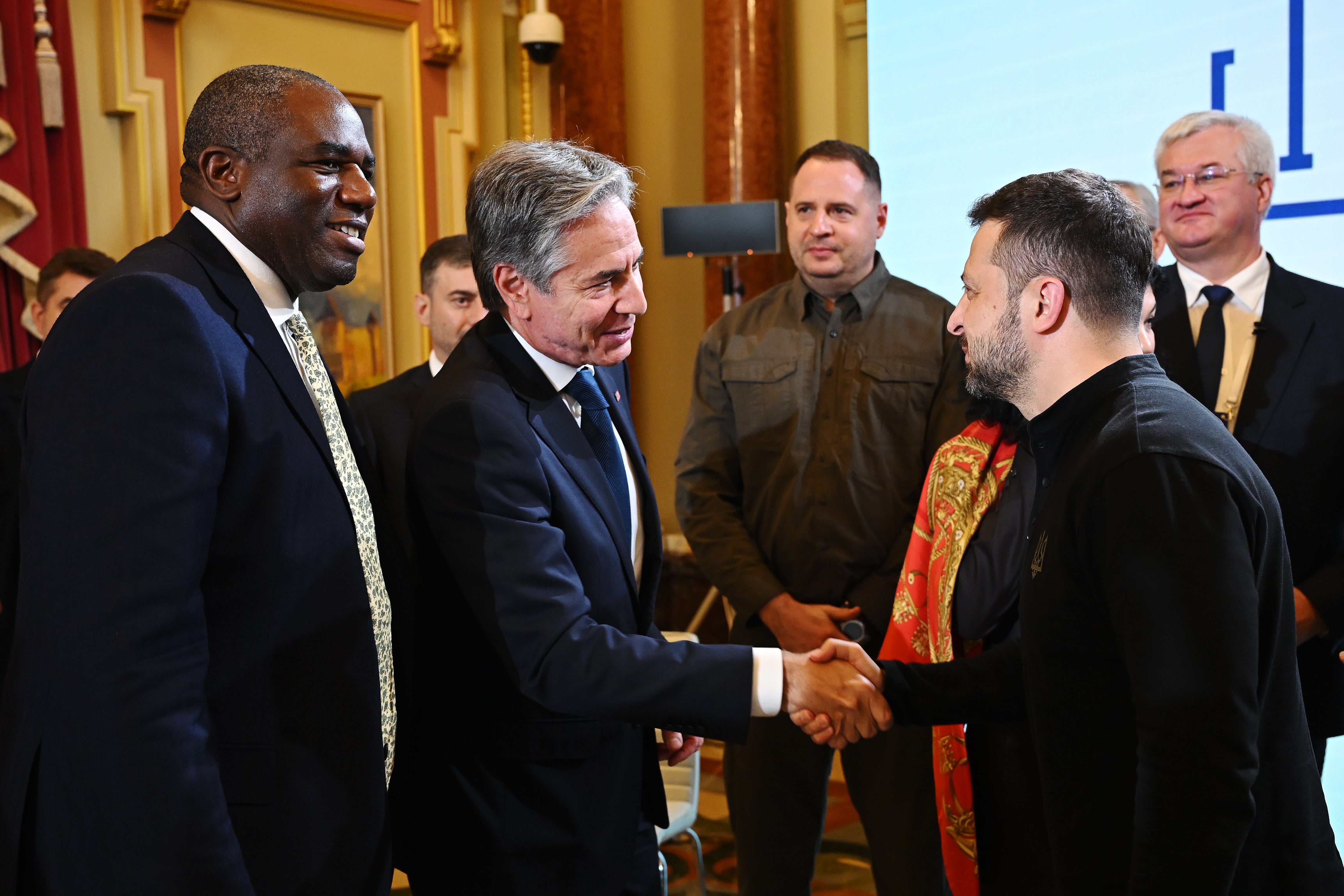Starmer stares down Putin as he and Biden prepare to hand Ukraine missiles
Prime minister set to hold intensive talks with US president to thrash out victory plan for war in Ukraine as Putin threatens war with Nato
Your support helps us to tell the story
From reproductive rights to climate change to Big Tech, The Independent is on the ground when the story is developing. Whether it's investigating the financials of Elon Musk's pro-Trump PAC or producing our latest documentary, 'The A Word', which shines a light on the American women fighting for reproductive rights, we know how important it is to parse out the facts from the messaging.
At such a critical moment in US history, we need reporters on the ground. Your donation allows us to keep sending journalists to speak to both sides of the story.
The Independent is trusted by Americans across the entire political spectrum. And unlike many other quality news outlets, we choose not to lock Americans out of our reporting and analysis with paywalls. We believe quality journalism should be available to everyone, paid for by those who can afford it.
Your support makes all the difference.Sir Keir Starmer defiantly stared down a threat of retaliation by Vladimir Putin as he flew out to Washington DC for talks with Joe Biden on the Ukraine war.
The prime minister and the US president are believed to be on the cusp of allowing Kyiv to open up a new front in the war with Russia by using Western Storm Shadow long-range missiles.
But in a message apparently timed for when Sir Keir and his entourage were over the Atlantic on their way to the US, President Putin said such a move would mean that Russia would be “at war with Nato”.
“So this is not a question of allowing the Ukrainian regime to strike Russia with these weapons or not. It is a question of deciding whether or not Nato countries are directly involved in a military conflict,” Mr Putin told Russian state TV.
But a determined prime minister told journalists on the flight: “First, to reiterate, it was Russia who started this in the first place. They caused the conflict, they’re the ones who are acting unlawfully. And Ukraine obviously has the right to self-defence.

“That is why we have been providing training and capability. And, you know, there are obviously further discussions to be had about the nature of that capability.
“What I want to do is make sure that those discussions, tactical discussions, are set in the proper strategic context of the situation in Ukraine. And there are, equally, tactical issues in relation to the Middle East, which need to be set in a context which is strategic, not just tactical.”
Overnight, in a move which appeared desgned to try to put the UK on the back foot, Russia upped the ante by revoking the accreditation of six British diplomats in Moscow, accusing them of spying. The Foreign Office has described Russia‘s accusations against the diplomats as “completely baseless.
The bilateral summit has been carefully choreographed with foreign secretary David Lammy and US secretary of state Antony Blinken making a joint visit to Kyiv this week. It is understood that the prime minister and the president want to thrash out a long-term victory plan for Ukraine.
Mr Lammy and Mr Blinken went to hear the case from Ukrainian president Volodymyr Zelensky and other senior Ukrainian politicians for allowing Ukraine to use the long-range Storm Shadow missiles against Mr Putin’s forces.
While no public announcement will be made on the decision, the use of the missiles, which have a maximum range of 155 miles, is going to top the discussions at the summit in Washington.
Sir Keir also insisted that the meeting was about an overarching strategy “rather than individual tactics”. He made it clear that he wanted a long-term approach that can survive the US presidential election and a potential change of policy agenda by Donald Trump.
He said: “We are key allies with the US, and very, very closely aligned, particularly on issues like Ukraine and the Middle East.
“There are really important developments likely in the next few weeks and months, both in Ukraine and the Middle East, and therefore a number of tactical decisions [will need] to be taken.

“I’m very keen that those tactical decisions are made within a strategic context. And quite often when we have international meetings, quite often in the margins of other meetings, there isn’t enough space, in my view, for the strategic discussion. So this is essentially to have that strategic discussion with a key ally.
“And as you know, the two secretaries of state, [Mr] Blinken and David [Lammy], went to Ukraine over the last few days. They’re obviously with us to report into the process on a really important joint trip, actually.
“It’s really to have that strategic discussion so that the tactical decisions that will be made are not just one-off tactical decisions made as a series of iterative decisions, but actually within a strategic context.”
Mr Lammy has already announced that the UK will be giving Ukraine another £600m in aid to help fight the war on top of the £3bn a year for as long as needed, confirmed by the prime minister in July.
Kyiv has supplies of the Anglo-French missiles but currently does not have permission to fire them at targets in Russia.
Mr Zelensky’s government has been pleading for the ability to extend the war further into Russia as a means of counterattacking and preventing further advances from Mr Putin’s forces.
During the extended meeting in the White House, the prime minister and the president will also discuss the urgent need for a ceasefire deal and the release of all hostages in the Middle East.
This follows disagreement behind the scenes over the UK’s decision to suspend 30 of 350 arms export licences to Israel because of legal advice regarding the potential that the Israel Defense Forces (IDF) may be in violation of international humanitarian law.
According to Downing Street, the session will focus on strategy and how progress can be made towards the long-term resolution of both conflicts.
The hope is that the decisions made will be future-proofed, so that they are able to stand whatever the outcome of the US presidential election, with Trump’s support for Ukraine in question.

The discussions on Storm Shadow missiles follow a significant escalation in the war on Ukraine after it was also confirmed this week that Iran has transferred ballistic missiles to Russia – bolstering Mr Putin’s capacity to continue his illegal war.
On the topic of the Middle East, Sir Keir and Mr Biden will discuss the devastating loss of life in Gaza and how urgent progress can be made towards the release of all hostages a ceasefire deal on both sides, while avoiding regional escalation at all costs.
The meeting is also expected to touch on a wider range of global issues, including advancing a free and open Indo-Pacific and strengthening US-UK cooperation to secure supply chains and increase climate resilience.
The president and the prime minister agree that the two governments should be using the strength of the US-UK relationship to deepen cooperation on shared global challenges.
The visit is Sir Keir’s second trip to Washington DC since winning the election on 5 July. His previous visit came in his first full week as prime minister, when he travelled to the US to mark Nato’s 75th anniversary. During that trip, he was forced to defend Mr Biden amid calls for the president to step down as the Democratic candidate for November’s election.
Since then, President Biden has given way to Kamala Harris, his vice-president, who is now the Democratic candidate, and this visit is set to be a final official encounter between the two men before a change of administration.
Sir Keir will not be meeting Ms Harris so close to the US election, but instead plans to hold a breakfast meeting with business figures in Washington before seeing the president.
The prime minister said Ms Harris “will not be in Washington because she will be campaigning in swing states, as you would expect”.

Join our commenting forum
Join thought-provoking conversations, follow other Independent readers and see their replies
Comments